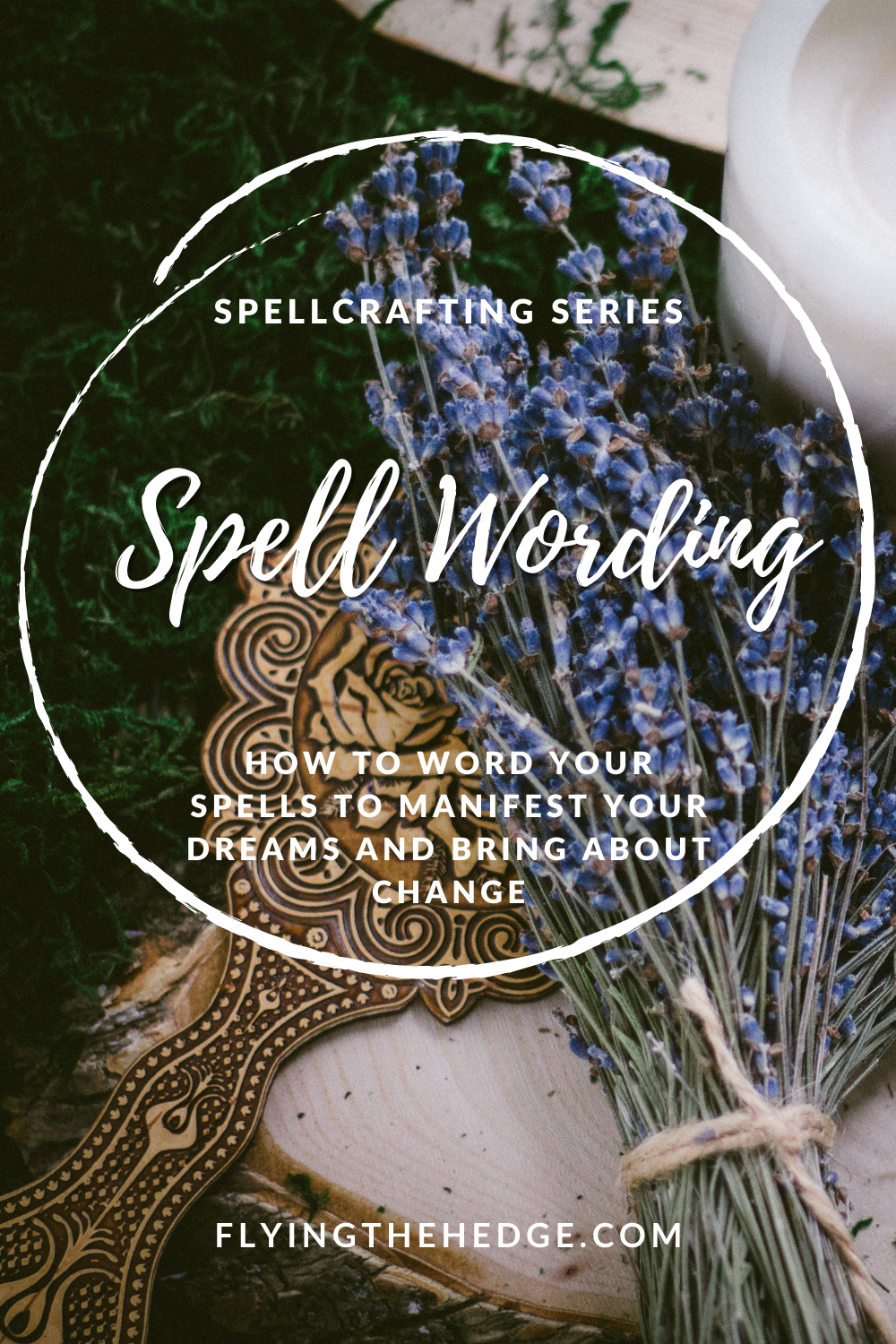So now that you know what type of spell you want to cast, have set an intention, secured your ingredients, and picked the best time to perform your spell, it's now time to figure out what to say. Along with setting a specific intention, I find that wording your spell is critically important to a spell's effectiveness. Honestly, you don't need special ingredients or even to perform your spell at the 'right' time for a spell to work, but if your intention and wording are off, it will certainly derail all your hard work and can even result in your spell backfiring completely. Depending on the spell, this could be catastrophic.
First and foremost, the wording you use within your spell should follow the same rules as your intention. It should be:
- Specific (no wants, wishes, hopes, or vague desires)
- Precise yet Open (while it should be specific, you should be able to say what you want in a few words, but leave the ending open enough to receive something better)
- Positive (use positive language over negative. Don't use words like not, won't, don't, or can't)
- Time-constrained (set a time frame for your intention)
- Personal (use I, me, and/or the person's full name)
- Reasonable (some things just aren't attainable and that's okay!)
For many spells, the wording you use can and should be your intention and nothing more. Write it, chant it in your mind, chant it out loud, sing it, scream it, whatever you feel is best for the work you are doing. There are, however, times when you'd want to use more than your intention in a spell, especially those that involve invoking spirits, deities, or ancestors, call upon your ingredients to aid in the work, or are part of an elaborate ritual. This isn't to say short, sweet, and to the point isn't valid during these times, but more than your intention is needed.
When it comes to wording, whether you are using only your intention or not, you have a couple of options on how to go about this. It's very common nowadays to have spells that rhyme. This is not a requirement by any means, but it makes spells easier to remember and chant, especially if you are working with longer spells, invocations, rituals, etc. It also gives the spell a sing-song nature, which can help trigger an altered state of consciousness during spell work, providing an opportunity to slip into the Otherworld to raise energy and seek aid to manifest your intention. Historically, however, spells have not rhymed. In fact, many spells probably shouldn't because it can interfere with your intention. If you are trying to force words to rhyme, you could inadvertently change your original intention in the process and destroy your spell before it even begins.
So how do you decide which method is best and what to say? Go with your gut. This is the most time-consuming part of spellcrafting, but well worth the effort. I personally like to use rhyming and the wording in my spells includes what I expect certain ingredients to do to bring about my intention. You can see this in several of my spells on this blog, including my Garden Blessing Ritual, Dispelling Sadness, and Egg Prosperity Spell. However, there are times that I use prose because that is the best way to get my intention across. This can be seen in such spells as Just Say No Candle Spell, Deep House Cleaning Ritual, and Seed Blessing Ritual.
In the Basics of Spellcrafting post, you practiced turning 'bad' intentions into 'good' ones. Now I would like you to take those same 'bad' intentions, turn them into good ones, and figure out what wording you would use to best convey your intention within your spell:
- I want to pay off all my bills and buy a mansion.
- I hope I get a new job.
- I wish he loved me.
- I don't have to go without.
Think about some ingredients you may use. Do you want to include these in your wording? Do you want it to rhyme? Will rhyming change the overall intention? Would prose be better?
By the time you finish this activity, you should have the groundwork laid for four spells that you will likely use more than once in your life. This takes practice and over time you will find that some things work really well for you, and other things don't. Just because I like to use my ingredients in my wording, doesn't mean that will work for you. I've said it once and I'll say it again, go with your gut. Trust your intuition.
Next time we will dive into the basics of raising energy, cleansing, charging, and centering before discussing what to do after your spell is done. Until then!
Interest in the rest of the series?
Spellcrafting Series
Looking for more information about writing your own spells? Check out my posts on the topic:
If you liked this post and would like to support future content, please consider leaving a small tip in the jar.



Informative, excellent post. That is a terrific point regarding how using rhyming may unintentionally alter one's desired outcome. Thank you very much for bringing it up. Rhyming in general has rarely been my jam, so I tend not to utilize it much in spellwork, but will definitely keep that insight in mind the next time I may feel compelled to rhyme my (spell) wording.
ReplyDeleteAutumn Zenith 🧡 Witchcrafted Life
Do you have a good way to find lost objects?ty
ReplyDeleteDivination is a pretty common way to find lost objects, particularly through the use of a pendulum or divining rod. Hold the object firmly in your mind and let the tool guide the way!
Delete